By Amanda Greene
Between enticing eats in the grocery store checkout line and coworkers' birthday treats at work, it seems as if we're bombarded with temptations every time we step out the door. But did you know that many reasons those stubborn pounds won't budge may actually be inside your own home? Whether the type of plates you use is causing you to eat more than you realize or your bedroom isn't letting you catch enough zzz's, learn how your house may be sabotaging your weight-loss plans.
Your serving plates are too large.
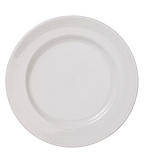
Those oversize restaurant-style plates make a dramatic statement on your dining table, but have you ever considered the effect they have on your waistline? "The size of your plate influences how much you serve yourself," says Brian Wansink, PhD, author of Mindless Eating: Why We Eat More Than We Think. "By switching from a 10-inch plate to a 12-inch plate, people will serve themselves 22 percent more." Think you'll notice if you accidentally over-serve yourself? Think again. According to Dr. Wansink, on average, people eat 92 percent of the food they serve themselves, so it's worth it to downsize your dishes. Or, as Linda Mintle, PhD, author of Press Pause Before You Eatrecommends, use your salad plates for your entrées. Similarly, notes Dr. Wansink, when you use a larger serving spoon-a two-tablespoon version instead of a single-tablespoon size-you'll dole out 14 percent more food. So skip the giant serving utensils in favor of traditional cutlery. Photo: Thinkstock
Discover 50 tasty foods under 100 calories.
Your drinking glasses are the wrong shape.
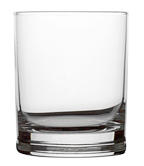
If your go-to glass is short and squat, it may be responsible for your similarly shaped figure. Dr. Wansink's research has shown that we end up pouring an average of 25 to 30 percent more liquid into short, wide 16-oz glasses versus tall, thin 16-oz glasses because, he says, our brains tend to over-focus on the height of objects at the expense of their width. That means when people pour drinks into tall glasses, they assume that they've reached their drink quota sooner, since they overestimate how much a tall glass can hold. So while your stumpy glasses may be perfect for guzzling down more water throughout the day, serve the sugary stuff in something else. Photo: Thinkstock
It's too easy to eat in front of the TV.
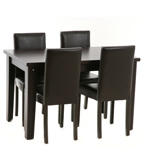
When your dining room table becomes a drop-off spot for mail, backpacks and other non-food-related items, it can be tempting to gather around the television for dinner or scarf down breakfast while checking your email. Avoid it, urges Dr. Mintle. "I always tell people to sit down at the table to eat their meals; it will slow them down. You eat more in front of a screen because you're multitasking and not concentrating on the feeling of fullness or enjoying the meal." Mike Moreno, MD, author ofThe 17 Day Diet, suggests making your television less visible. "The TV needs to be looked at as something that's an effort, as opposed to something that's in your face. Turning it on almost has to be a chore." So place it inside a media cabinet with doors or move it away from your comfiest couch so you aren't tempted to plop down and start snacking-especially since Dr. Mintle found that food commercials often prompt people to head for the kitchen. Photo: Shutterstock
Find out why you eat when you're not hungry.
Your bedroom isn't conducive to sleep.
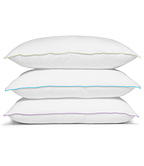
Getting a good night's sleep is essential to keeping your weight in check. When you're tired, levels of leptin, which controls appetite, decrease, while levels of ghrelin, an appetite stimulator, increase. Dr. Mintle recommends working on your "sleep hygiene" to ensure you get enough zzz's. Swap your regular curtains for blackout shades, which will keep your room darker, or invest in a noise machine to cancel out distracting sounds. Even a too-soft or too-stuffed mattress can impede a restful night's sleep. For more tips on how to sleep better, check out " 10 All-Natural Ways to Get a Better Night's Sleep" and " 10 Foods That Can Help You Sleep." Photo: Thinkstock
Your snack foods are always within reach.
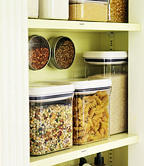
When you're hungry, you're going to grab what's closest, so if you take time to strategically arrange the food in your pantry, you can count on keeping off some of that excess weight. "You're three times more likely to eat the first thing you see than you are the fifth thing you see," says Dr. Wansink. Bury the unhealthy snacks in the back of the cabinet and place good-for-you foods front and center so they catch your attention first. And if you're in the habit of stockpiling family favorites from warehouse clubs, be sure to relegate the extras to the basement or garage. In a study documented in Mindless Eating, Dr. Wansink found that when people kept an excess of food and snacks in their kitchen-12 boxes of cereal instead of the usual two-they ate them at almost twice their usual rate during the first week. The surplus, suggests Dr. Wansink, encouraged them to finish up the food quickly so that the quantities would return to a "normal" amount. Photo: Veer/Woman's Day
Fill your pantry with these nutritious snack options to satisfy your hunger and help you lose weight.
The music you play while you eat is too fast.
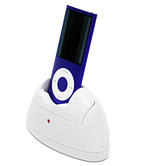
You know how fitness experts recommend listening to up-tempo music while you work out so you'll increase intensity? The same logic applies to eating, but not in a good way. "The faster and more upbeat the music that's playing, the more you're going to eat," says Dr. Mintle. "It's an unconscious cue to pick up the pace at meals-think about fast-food joints that play these types of songs." On the other hand, she notes that nicer restaurants play slower music, which encourages you to linger and enjoy your meal. "If you eat slowly and enjoy every bite, your brain and stomach have time to talk and figure out that you're full before you overeat." So play some slow-tempo tunes to dial down your pace at the dinner table. Photo: Thinkstock
Original article appeared on WomansDay.com.
You Might Also Like:
8 Common Weight-Loss Myths-Debunked
10 Reasons Your Body Thinks It's Hungry
7 Super-Powered Food Pairings
8 Sexy Ways to Burn Calories
8 Surprising Health Benefits of Sex
No comments:
Post a Comment